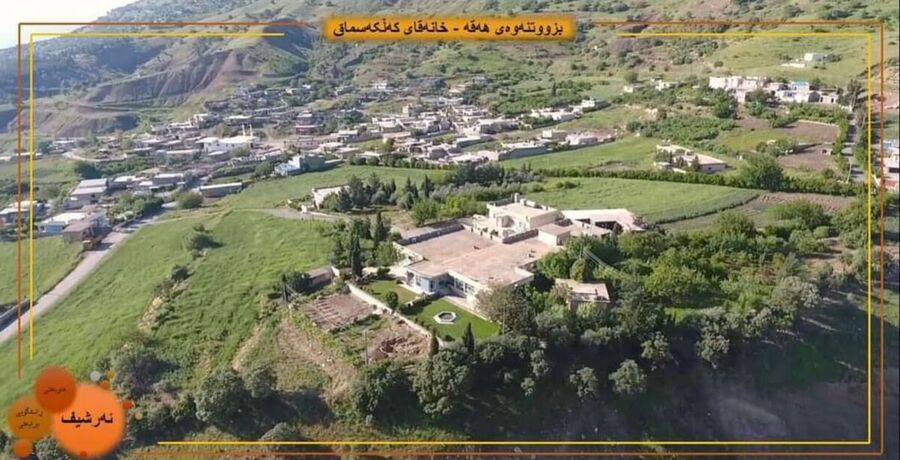After Naqshbandi Tariqat (a religious group) under the guidance of "Mawlana Khalid Naqshbandi" spread out, Mawlana tried to expand this Tariqat, its ideology, its religious and social relationships that were accepted by that Tariqat. Thus, he asked a man named "Sheikh Ahmad Sardar" to help him out in spreading and developing the Naqshbandi Tariqat in Kurdistan. After Sheikh Ahmad Sardar, those who became guidance in this Tariqat included: "Sheikh Qader Soor", "Sheikh Reza Askar", "Sheikh Mohammad Ilallah", "Haji Sheikh Mustafa", "Sheikh Mullah Ahmad Galneri". Each of them was actively working in a part of Kurdistan and gathered more Murids and followers for Naqshbandi Tariqat. After all these, "Sheikh Abdul Karim Shadala" received Naqshabandi Tariqat and began to spread it out in different regions in Kurdistan. Sheikh Abdul Karim developed the beliefs of this Tariqat in Doukan, Bakrajo, Chwar Qurna, Jarawa, Sangasar, Bazyan, and many other regions; he even developed these beliefs in Kirkuk and Hawler, too.
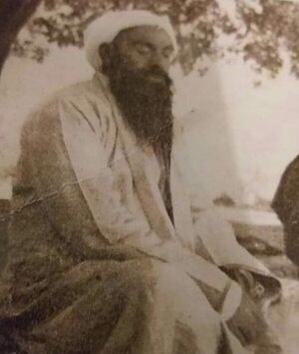
Sheikh Abdul Karim Shadala
However, Sheikh Abdul Karim, although he preserves most of the fundamental aspects of Naqshbandi Tariqat, made some changes in the way of thinking of this Tariqat based on his own particular spirit and he established a new thinking atmosphere. This new atmosphere with its new paths and ways of thinking was called the "Haqa Course".
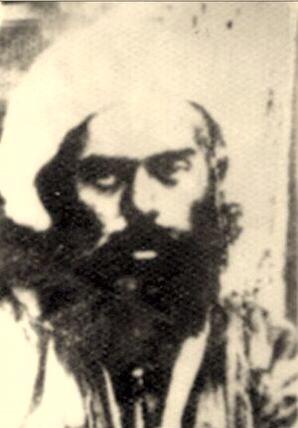
Sheikh Abdul Karim Shadala
Haqa Course was not simply a religious course. Although as it is mentioned earlier the Naqshbandi Tariqat also has some nationalism points in some of their thinking aspects and shows that it was important for them where their followers lived, however, Sheikh Abdul Karim Shadala attempted to mix religious thinking with the social and daily life of people. This means that the difference between the Haqa course or the way Sheikh Abdul Karim Shadala thought and the other forms of Tariqat was that the other forms of Tariqat acted as a bridge between the daily life of religious people and the beyond world but Abdul Karim Shadala was different. That is, the other forms of Tariqat looked up to the sky. All the other forms of Tariqat before Shadala's prepared the people for a better life full of beauty and happiness in the next world, beyond the world we know.
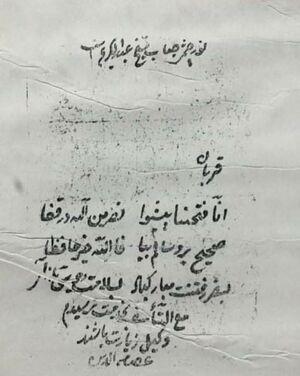
The Certification for Sheikh Abdul Karim Shadala for being a Mullah
Although the Haqa course preserved this spiritual relationship between people and God, before they prepared the people for a life in the beyond that is out of reach of everyone, like any other philosophy and thinking course that is secular they tried to prepare people for living in the society where it is accessible for people. Based on this, Sheikh Abdul Karim introduced some centres to study the human way of thinking. All these centres were serving the peaceful social life of people on Earth. It means that the Haqa course that supports the truth and rights of people's lives was pioneered on the ground and in this world's nature.
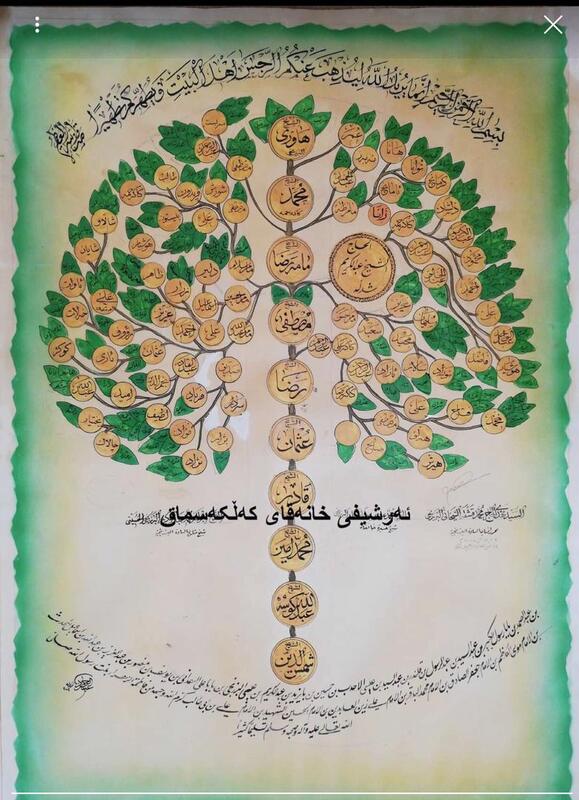
The Family Tree of Haqa Sheikhs
The basic points of the Haqa Course included:
First: In human societies where people are divided into two groups "Ruling class" and "Commoners", like any other humanitarian philosophy that points it out, there is the possibility that the Ruling class oppress the Commoners. Based on this idea and viewpoint that society is made of unequal social classes, the Haqa course encouraged their followers to support the commoners and continually insist on their rights against those who oppress them and violate their rights. That is, they somehow judge the phenomena and human relationships of society and support those who are righteous.
Second: Peace and healthy relationships are very important. Obviously, based on our interpretation of most of the ideological schools and religious traditions, we conclude that the addressees are mostly men and the male gender. However, in the Haqa course, they emphasize that all the members of society, men and women, male or female, should have an equal relationship. In this relationship, neither of the genders is superior to the other.
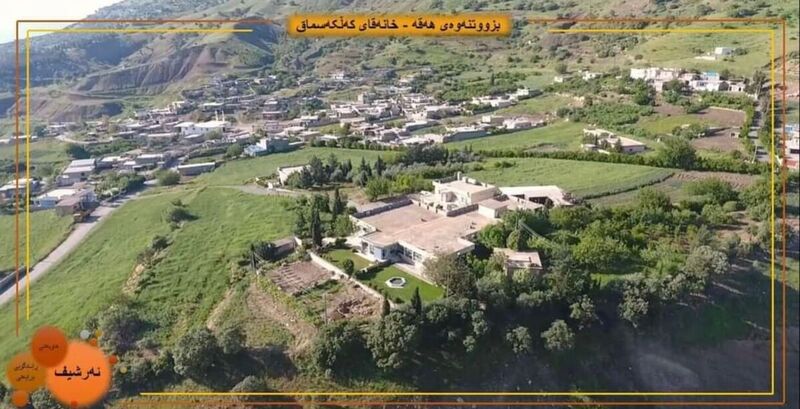
Kalka Simaq Khanaqa, one of the important Khanaqas of the Haqa
Third: Believing in ending the social "Classification". In this way of thinking the social classes are not regarded as important. That is, the wise class, the Lords, Mullahs, Sheikhs, Masters, Workers, Farmers, etc. all belong to one class and these social classes must be abandoned completely and all the people should be equal. Thus, most of the followers of this ideology who were from aristocrats and wealthy classes of the society gave up their properties and devoted them to poor people.
Fourth: Social cooperation or social support. The Haqa course followers thought that all the members of the society did not have the same financial and spiritual capabilities.Thus, some of the members of the society need help and they must be aided so that they could enhance their life conditions. All those who live in the society, as followers of this ideology, tried to save a part of their income so that they could help out the poor.
Fifth: Emphasizing the importance of counselling or what is called "Social Collective Thinking". If in other religious courses and Tariqats the load of thinking and decision making was on the leader of that religious course's shoulders, accordingly that leader and his close companions would become more prominent than the other people would result in a form of classifying the society into different classes. In the Haqa course, they believe that all the members of the society and the followers of this religious course must be asked and consulted in times of making important decisions. What is later carried out in the society must be the synthesis of these thoughts, ideas and consults of all the society members.
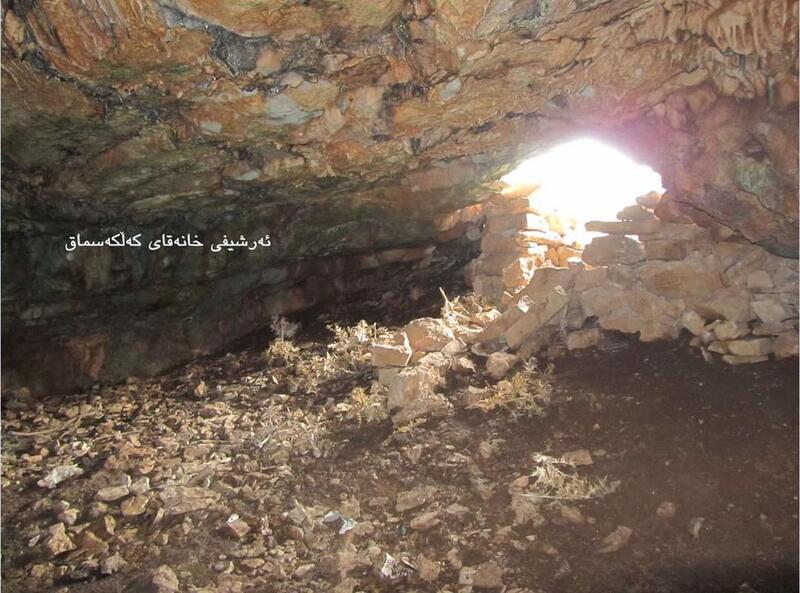
The cave of Mama Rezaie who is a branch of the Haqa Course. It is located in Topzawa Village and the followers of this course went there to rest and keep their secrets.
Sixth: Keeping the secrets of this society is very important. This foundation, regarding the social realities of Kurdistan, and the religious atmosphere in the Middle East, was established on the condition that if they express their ideology publicly due to the very distinct way of thinking and beliefs, they might be threatened by their opponents. Thus, they insisted on keeping most of the secrets of this religious course. This is why we can say that the society they had built was somehow a closed one.
Seventh: The importance of women's role. As we mentioned in the previous basics, the Haqa Course is very different from the other ideologies. In this religious course, women can express their ideas. They can freely choose their partner. They can work and build their own business freely and gain their equal rights in the society.
Eighth: In contrast to all the other religious courses of the Middle East, this course is established based on "peace", and "coexistence". That is, this religious course is against any form of violence.
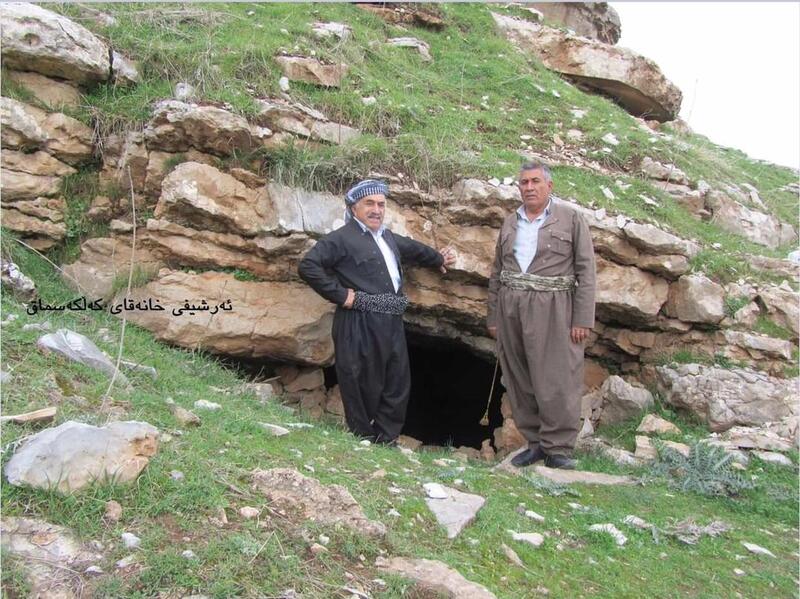
The cave of Mama Rezaie who is a branch of the Haqa Course.
Ninth: Although this course was a traditional reaction, as the modern organizations, the followers of the Haqa course believed in having some social centres to take responsibility for carrying out the tasks. Thus, they built their Takya and Khanaqas to be centres for helping people in the villages and cities.
Tenth: The guidance of the Haqa Course is very interesting for considering physical health very important. Thus, the tenth basic idea of this belief is a basic that talks about the importance of physical health and emphasizes that people should not smoke or drink alcohol.
Eleventh: The last basic guidance of the Haqa course is emphasizing not having many children. That is, they believed in population and birth control. Although they have used religious analysis on this matter.

